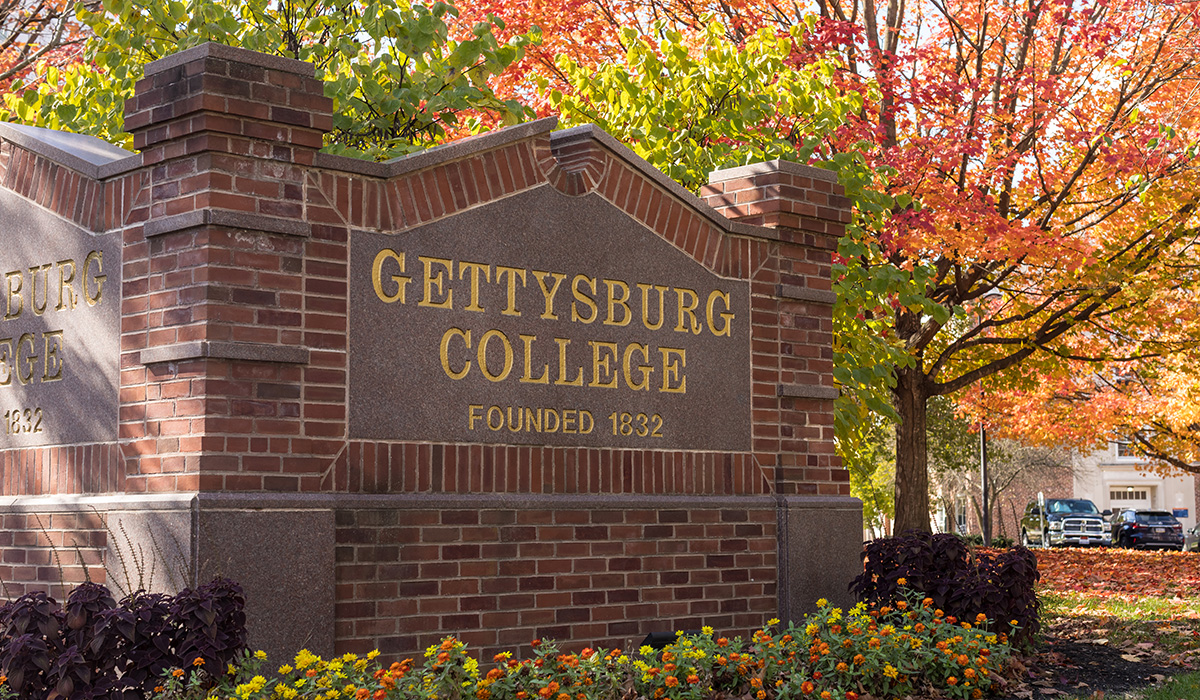
From Aug. 28 through Sept. 1, 2023, NPR’s Academic Minute podcast series, republished by Inside Higher Ed, featured five faculty during Gettysburg College Week: Health Sciences Prof. Megan Benka-Coker ’09, Africana Studies Prof. Jennifer Bloomquist, English Prof. Christopher Fee, Environmental Studies Chair Salma Monani, and The Gilder Lehrman-National Endowment for the Humanities Chair of Civil War Era Studies and History Prof. Jim Downs. On Nov. 29, Political Science Prof. Alauna Safarpour then appeared on a follow-up feature.
Go inside each of these episodes, which cover the breadth and depth of Gettysburg’s liberal arts and sciences education:
“Evaluating Real-World Global Health Interventions” with Prof. Megan Benka-Coker ’09
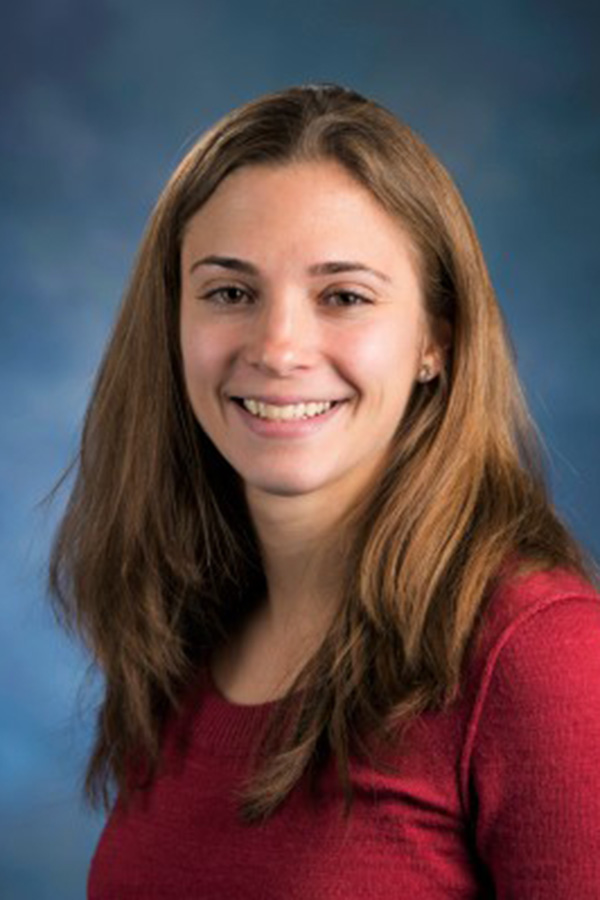
Cooking with biomass fuels, such as firewood, can lead to pollution within our homes. Health Sciences Prof. Megan Benka-Coker ’09 speaks about an innovative heating method that mitigates risks in hard-to-reach areas, enhancing sustainability and safety:
“In our current research, partners from the U.S., Netherlands, and Ghana have returned to the site of a large community-based cookstove intervention in Ghana completed three years earlier to ask: ‘Where are they now?’” said Benka-Coker. “Our goal is to document and understand factors related to sustained stove use among households that received cleaner burning charcoal stoves and liquid petroleum gas stoves.”
Benka-Coker’s research at Gettysburg focuses on household air pollution and the health impacts of exposure to those biomass fuels. She has studied populations around the globe, including Ethiopia and Honduras, with the goal of reducing disease associated with household pollution. She double majored in health sciences and globalization studies at Gettysburg and received a master’s degree in public health from Emory University’s Rollins School of Public Health.
“Linguistic Minstrelsy in Children’s Animated Film” with Prof. Jennifer Bloomquist

Through animated films, children are exposed to variety of cultures, relationships, and conflicts. Africana Studies Prof. Jennifer Bloomquist talks about the influence of diverse representation in animated movies and its impact on children’s education:
“The purpose of my research is to provide a history of African American characters and characterizations in children’s feature-length animated films to examine the ways in which Blackness has been constructed in children’s media over the past 60 years,” said Bloomquist. “My research aims to analyze the impact of animated representations of Blackness on children’s understanding of ethnicity.”
Bloomquist is currently working with Oxford University Press on a project, “From Dumbo to Donkey: Linguistic Minstrelsy in Children’s Animated Films,” that focuses on the representation of African American English and its role in the construction of ethnicity in children’s animated films. She earned her bachelor’s degree in English Literature from Clarion University and her master’s and doctoral degrees in linguistics from the University of Buffalo.
“Paddling in the Wake of the Vikings” with Prof. Christopher Fee

Retracing history can provide a better glimpse into understanding today’s world. English Prof. Christopher Fee shares his travels from 2022, kayaking to a Viking settlement site in North America, following a similar route taken thousands of years ago:
“We used our voyage to explore how the here and now informs our understanding of the there and then, both in terms of the challenges of wind and sea and the realities of changing weather patterns and intercultural conflict in contemporary Canada,” Fee said. “Our field research corroborated our scholarly analysis of the ways in which the Norse experience in North America provides a telling counterpoint to contemporary concerns with pandemic, cultural conflict, and climate change.”
At Gettysburg, Fee teaches courses with experiential learning components on topics such as homelessness with a trip to Washington, D.C., and medieval drama with plays in Denmark. He received his bachelor’s from Baldwin-Wallace College and then went on to earn master’s degrees in English from Loyola University in Chicago and in medieval studies from the University of Connecticut. He also earned a Ph.D. in English Language from the University of Glasgow.
“Mediating Human-Nature Relations” with Prof. Salma Monani
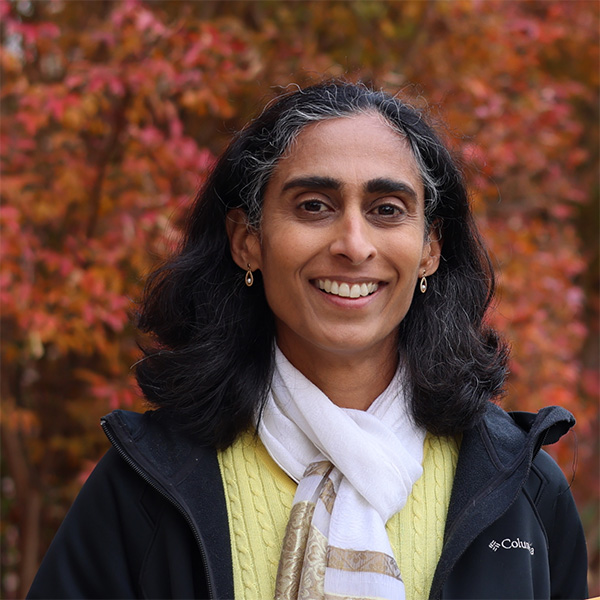
Digital media impacts the environment, such as faster streaming requiring increased energy use. Environmental Studies Chair Salma Monani explores strategies to reduce the ecological footprint of our digital entertainment choices:
“When we study the lifecycle of media from production to disposal, we debunk the myth that digital media is green because it is paperless,” Monani said. “We study initiatives occurring at all levels from mainstream efforts, such as by BBC and Netflix, to independent local efforts. … Ecomedia scholars show us that media is environmentally harmful; it can also be deployed less harmfully.”
Monani’s research at Gettysburg focuses on cinema and other forms of media communication, including those related to environmental justice issues. She is currently working on a book, “Indigenous Ecocinema,” which highlights environmental dimensions in films made by contemporary Canadian First Nations’ producers. She received her bachelor’s from Mount Holyoke College, master’s degrees from the University of Wisconsin-Madison and University of Colorado-Boulder, and a Ph.D. from the University of Minnesota Twin Cities.
“New Theories of Epidemiology” with Prof. Jim Downs
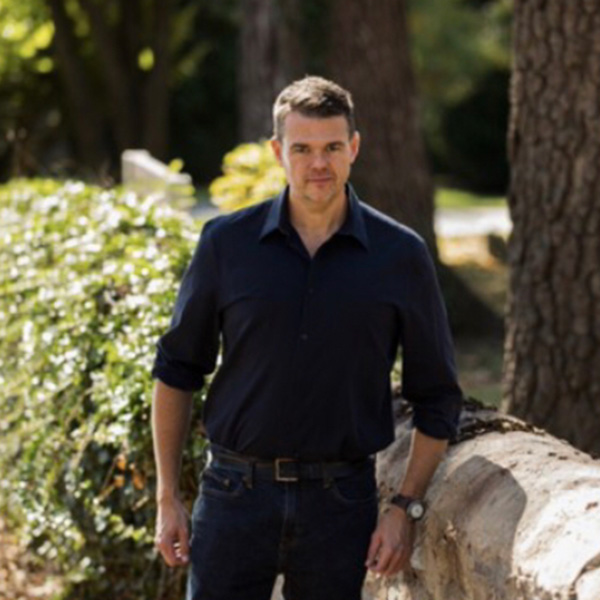
Medical knowledge and approaches to diseases have evolved over time. The Gilder Lehrman-National Endowment for the Humanities Chair of Civil War Era Studies and History Prof. Jim Downs discusses the history of epidemiology and how early physicians developed a network to share information and theories on infectious diseases:
“While medical thinkers since Aristotle have studied epidemics, my research shows how the confluence of slavery, imperialism, and war gave way to the creation of a massive bureaucracy that enabled doctors to develop a bird’s eye view of an epidemic,” Downs said. “These unprecedented networks allowed physicians to share information about infectious disease among subjugated populations, which led to the first ever Epidemiological Society in 1850.”
Downs was recently elected to the Society of American Historians, The Royal Historical Society in the United Kingdom, and the Executive Council for the Southern Historical Association. In 2022, he received a grant from the National Endowment for the Humanities to direct a summer institute, “Civil War Archives: A New Social and Culture History,” for faculty in higher education. He received his bachelor’s from the University of Pennsylvania and his master’s and Ph.D. from Columbia University.
“Taking Perspective: Reducing Prejudice in Politics” with Prof. Alauna Safarpour
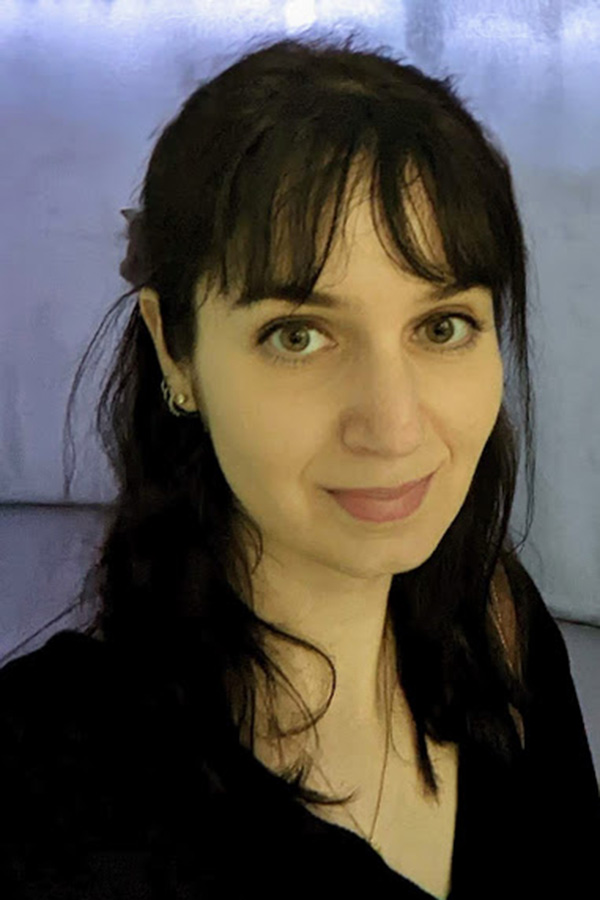
Support for policies addressing racial inequalities and injustice continues to be low. Political Science Prof. Alauna Safarpour dives into her theory for reducing prejudice and the positive impact on society that takes shape as a result:
“My approach is rooted in findings from psychology and cognitive neuroscience, and the interventions are deployed entirely online,” said Safarpour. “Through a series of experiments, I demonstrate that encouraging individuals to actively engage in understanding the experience of another can significantly reduce anti-Black prejudice.”
At Gettysburg, Safapour’s research focuses on race and ethnic politics, prejudice reduction, public opinion, and political participation, and has also conducted research on American public health attitudes and behaviors. She earned her bachelor’s in political science and history from the University of North Carolina and a master’s degree in political science from American University. She also received a master’s and Ph.D. in government and politics from the University of Maryland.
Posted: 12/07/23